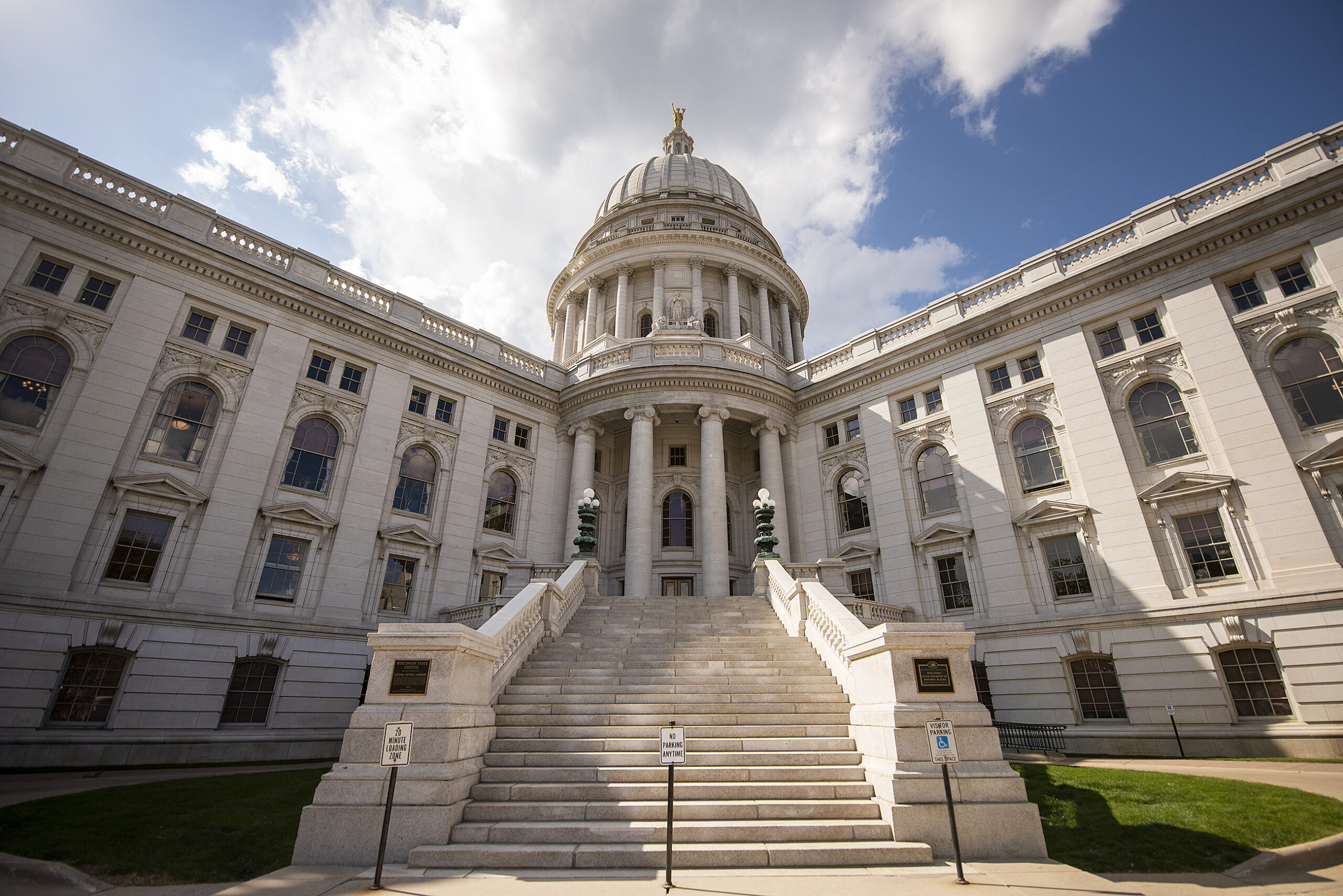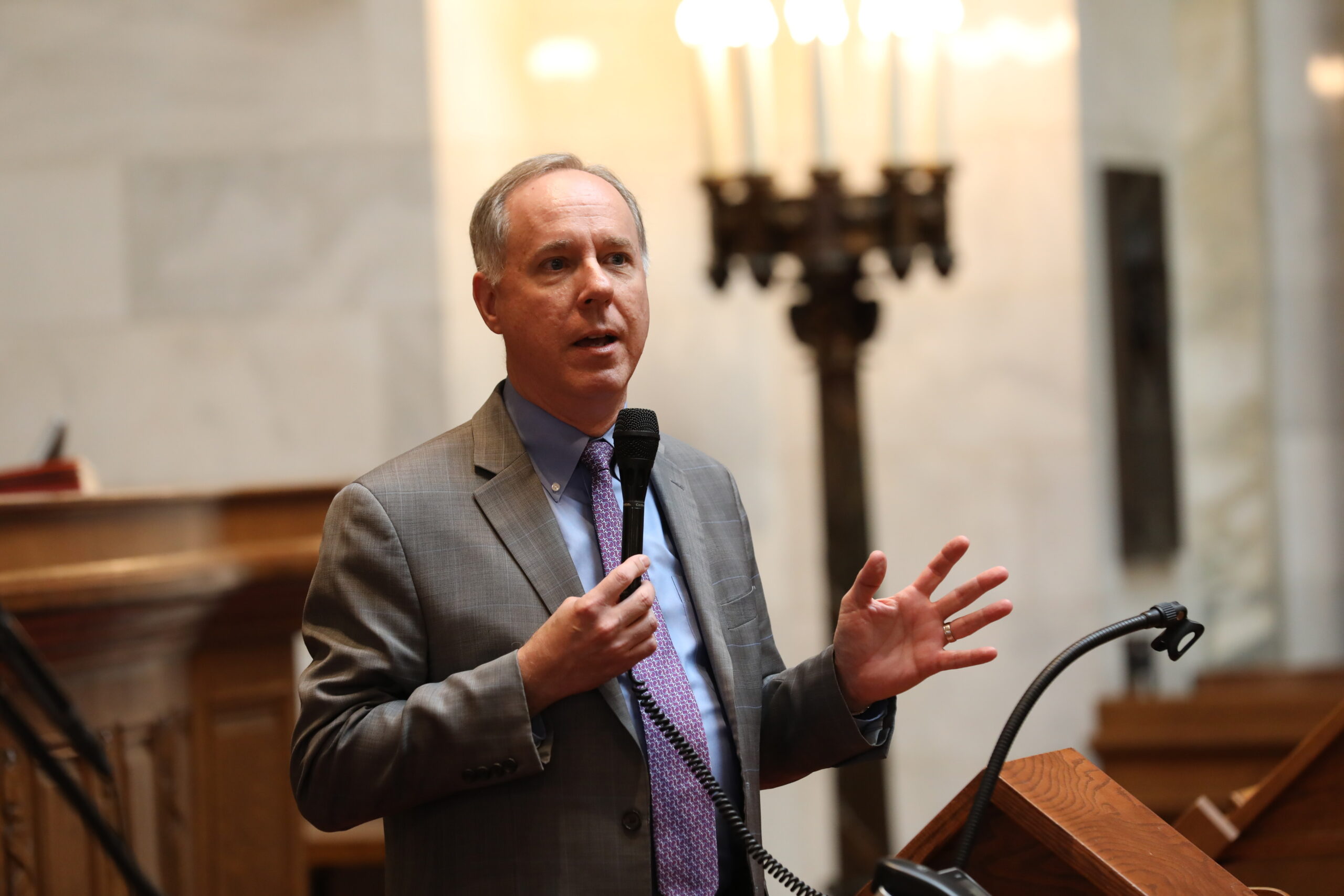Republicans in the Wisconsin Senate and Assembly have passed new legislative district lines that are identical to those drawn by Democratic Gov. Tony Evers in their latest attempt to enact new maps before the Wisconsin Supreme Court’s liberal majority does it for them.
The maps passed the Senate by a vote of 18-14, as five Republicans joined most Democrats in voting against the maps. Hours later, they passed the Assembly by a 63-33 vote, with all Republicans in favor and all but one Democrat voting against.
Senate Majority Leader Devin LeMahieu, R-Oostburg, introduced Evers’ maps as an amendment to a bill shortly after session began Tuesday. A memo from the Wisconsin Legislative Reference Bureau confirmed that maps voted on Tuesday are identical to what Evers submitted to the state Supreme Court as part of an ongoing redistricting lawsuit.
News with a little more humanity
WPR’s “Wisconsin Today” newsletter keeps you connected to the state you love without feeling overwhelmed. No paywall. No agenda. No corporate filter.
LeMahieu said Republicans decided to support the governor’s maps because “the writing was on the wall” in the Supreme Court redistricting case, arguing the court’s liberal majority hadn’t taken GOP arguments in the case seriously.
“Given the circumstance, the Legislature is faced with two choices,” LeMahieu said. “Either pass the governor’s maps as is or allow the liberal majority of the Wisconsin Supreme Court to gerrymander the state at the very last minute without public input.”
Evers vetoed a previous version of his maps that were passed by the Legislature with changes to protect a handful of GOP incumbents. But the governor indicated during an interview with WISN-TV that if Republicans passed his maps unchanged, he would support them.
“If my maps are approved by the Legislature, of course I’d sign them,” Evers said.
Like other maps submitted to the Wisconsin Supreme Court, Evers’ plan would improve Democrats’ chances in future races for the Legislature — where right now, Republicans hold a 64-35 majority in the Assembly and a 22-10 majority in the Senate. Most of the maps submitted to the court would still give Republicans a slight edge but would likely move the Legislature closer to 50-50.
Of the four plans recommended for consideration by two consultants hired by the court, Evers’ map is slightly less favorable to Democrats than the other alternatives. LeMahieu and other Republicans indicated Tuesday that given the circumstances, they’d prefer it to the alternatives.
Most Democratic lawmakers were critical of Republicans during debate, with Sen. Chris Larson, D-Milwaukee, questioning the change of heart from the GOP.
“I think that anybody observing what has been happening in this body knows exactly what is happening — that there are tricks up your sleeves, that this is headed towards litigation,” Larson said.
Some Democrats, including U.S. Rep. Mark Pocan, had speculated recently that Republicans could pass Evers’ map and try to overturn it in federal court. But when asked about that possibility at a news conference Tuesday, Assembly Speaker Robin Vos, R-Rochester, said it wasn’t happening.
“Once we pass the maps, more or less, the lawsuits stop,” Vos said. “If the governor signs the map, I am supremely confident that that is the map that we will run on in November, whether I like it or not.”

In a brief speech before the Assembly passed the maps, Vos said Republicans would be very competitive under the new maps, but said “the Legislature will be up for grabs.”
“Pains me to say it, but Gov. Evers gets a huge win today,” Vos said.
No other lawmakers spoke during the Assembly debate, but in a statement issue after the vote , Assembly Minority Leader Greta Neubauer, D-Racine, said she was concerned Republicans were “up to their usual tricks,” saying Republicans would do “whatever it takes to keep their power.”
Sen. Mark Spreitzer, D-Beloit, voiced similar concerns during the Senate debate, suggesting the way the bill was worded could allow special elections and recall elections held before the November presidential election to run in current GOP-drawn districts. Vos faces a potential recall in his Assembly district.
“I’m wondering if Robin Vos didn’t want to try to make sure that he can be recalled in his current district, even though it’s unconstitutional, rather than a new one,” Spreitzer said.
A spokesperson for Evers said after the Legislature’s vote that there had been no change in the governor’s position on the maps.
The Wisconsin Elections Commission has said it needs maps in place by March 15 to prepare for this year’s elections in the new districts.
For more on the history of redistricting in Wisconsin and how it impacts political power in the state, check out WPR’s investigative podcast series, “Mapped Out.”
Wisconsin Public Radio, © Copyright 2025, Board of Regents of the University of Wisconsin System and Wisconsin Educational Communications Board.







